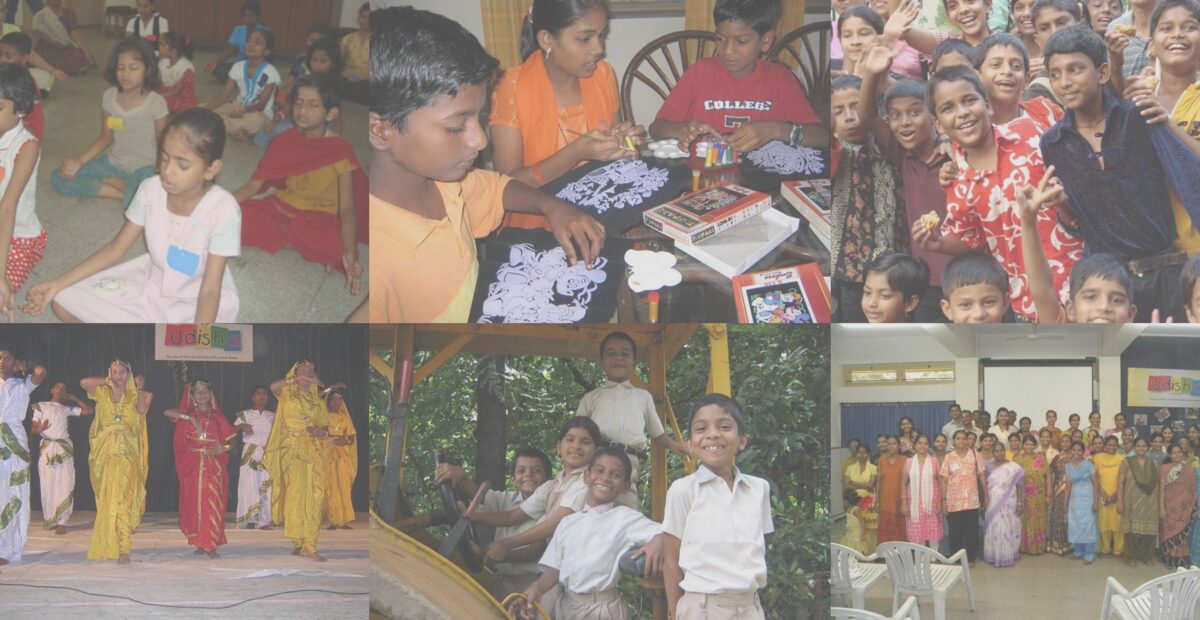
Workshop
Udisha – A new dawn

The work, aims and hopes of Project Udisha, in Mumbai, India, which supports children and families in the shanty towns of Goregaon and Malad.
Since its beginning 26 years ago, and the hope of a better future it has given to so many children and families living in the shanty towns of Goregaon and Malad, Project Udisha is so true to its name; Udisha, in Marathi language, means “ray of sunlight that announces the dawn”. The aim of the project is helping children of marginalised families to attend school and complete their high school diploma. Support is given in many different ways, from help with school fees, medical advice, nutrition, parenthood and looking after children, young people and their families.
In 2022, the Project helped 165 children, involving 110 families. These families are from an extremely poor socio-economic background and struggle to get to the end of the month. Things became even harder during the pandemic, as people lost jobs or had their already very low wages cut even further. They could no longer manage to pay for school or medical care.
Educational support
It is normal in India, for primary and middle schools to have classes of up to 70-80 pupils, in just one classroom. In these conditions, it is extremely difficult for teachers to look after every pupil, especially the children with special needs. What is more, school fees are high and the families helped by the project cannot afford to pay them.
Udisha runs a centre where lessons are free, up to tenth grade, which is equivalent to seventh grade in Italy. Lessons take place Monday to Saturday, every morning from 10am until 12.30 and every afternoon from 2pm-18.30. “Lessons include English, Hindi, Marathi, geography, history, science and mathematics, with a break of half an hour to play and have a snack” explain the Udisha volunteers. 98% of the children manage to pass their exams and go on to further studies.
Nutritional help
Although India as a country is experiencing economic growth, there are still huge social inequalities. According to national statistics, 46% of children under 3 years of age are underweight; 30% are underweight at birth and a further 19% of the population are malnourished.
Project Udisha distributes 500 rupees to every family, the equivalent of 6.5 euros, to buy food (salt, lentils, oil and flour).
Training and formation
The children supported by Udisha come from the shanty towns, where family situations can be very difficult, such as single parent families, or an alcoholic father; there is not enough to eat and over-crowding and cramped conditions cause many tensions. For this reason, an important part of Udisha’s outreach is to provide courses of formation to meet the many different needs of family members. One of the volunteers explains: “we held a medical course in how to manage diabetes and high blood pressure, for 70 parents. As well as awareness courses in First Aid, menopause, hygiene and nutrition. Last June boys and girls received basic First Aid training from one of our social workers who is also a professional nurse”. And almost 50 people attended our two parenthood programmes, one for couples and one for single mothers.
“The focus of all our activities is the wellbeing and development of each person, including raising awareness in mental and physical health, among children and parents. There is still much to do”, explain the Udisha volunteers, but a ray of sunlight is peeping through, announcing a new dawn.




